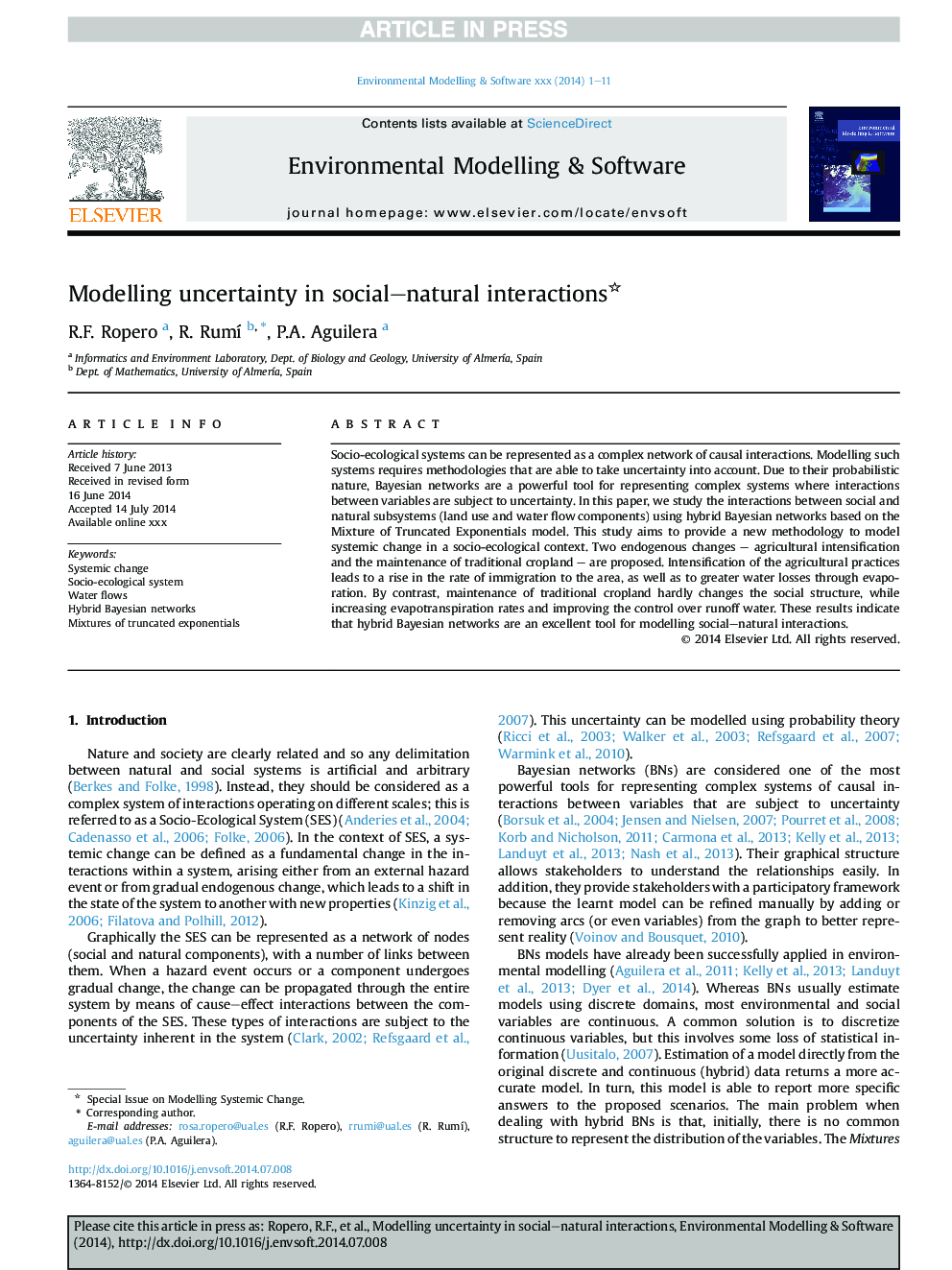| Article ID | Journal | Published Year | Pages | File Type |
|---|---|---|---|---|
| 6962685 | Environmental Modelling & Software | 2016 | 11 Pages |
Abstract
Socio-ecological systems can be represented as a complex network of causal interactions. Modelling such systems requires methodologies that are able to take uncertainty into account. Due to their probabilistic nature, Bayesian networks are a powerful tool for representing complex systems where interactions between variables are subject to uncertainty. In this paper, we study the interactions between social and natural subsystems (land use and water flow components) using hybrid Bayesian networks based on the Mixture of Truncated Exponentials model. This study aims to provide a new methodology to model systemic change in a socio-ecological context. Two endogenous changes - agricultural intensification and the maintenance of traditional cropland - are proposed. Intensification of the agricultural practices leads to a rise in the rate of immigration to the area, as well as to greater water losses through evaporation. By contrast, maintenance of traditional cropland hardly changes the social structure, while increasing evapotranspiration rates and improving the control over runoff water. These results indicate that hybrid Bayesian networks are an excellent tool for modelling social-natural interactions.
Keywords
Related Topics
Physical Sciences and Engineering
Computer Science
Software
Authors
R.F. Ropero, R. RumÃ, P.A. Aguilera,
